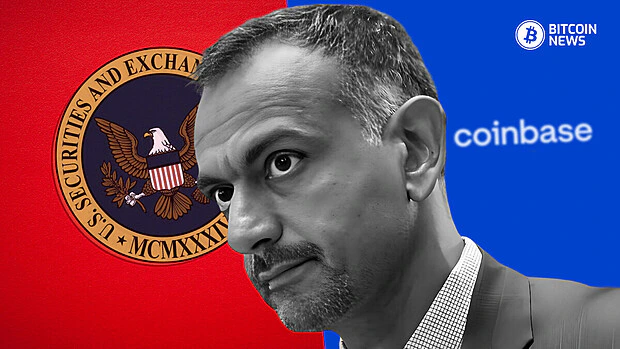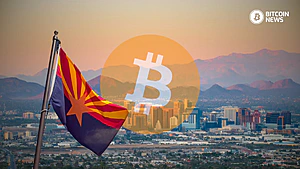In a battle that could reshape the future of Bitcoin regulation, the United States Securities and Exchange Commission (SEC) and Coinbase, a leading exchange, are locked in a legal showdown.
The dispute revolves around Coinbase’s petition for new digital asset regulations, which the SEC has firmly rejected.
Coinbase SEC Lawsuit: A Disagreement Over Classification
Coinbase, a prominent player in the digital assets market, argued that the current regulatory framework is outdated and stifles innovation.
The exchange petitioned the SEC to create new rules tailored specifically for “crypto assets,” citing difficulties in compliance and the need for a more comprehensive approach to regulation.
The SEC swiftly rebuffed Coinbase’s plea, standing firm on its decades-old regulatory framework.
The agency believes that existing securities regulations effectively protect investors, maintain market integrity, and facilitate capital formation. It dismissed Coinbase’s attempt to sidestep the Howey Test, a longstanding measure used to determine if an asset qualifies as an investment contract and security.
The SEC mentioned in legal papers filed on March 27:
“At least some of the transactions on Coinbase’s platform and through related services constitute ‘investment contracts,’ which the federal securities laws have long recognized as securities.”
According to the SEC, Coinbase’s dissatisfaction stems from its refusal to comply with established laws.
The agency accused Coinbase of trying to “manipulate the question” over what constitutes an investment contract under securities laws, stating: “Coinbase’s attempts to manipulate the question for appeal to shoehorn it into a certifiable question under 28 U.S.C. § 1292(b) are self-defeating.”
The SEC stated that Coinbase hasn’t been able to provide a clear and consistent explanation of their theory, which they now argue is crucial. In a court filing, the SEC emphasized:
“Coinbase just does not like the answer. Having made the weather, Coinbase cannot now complain that it is raining.”
Undeterred by the SEC’s rejection, Coinbase took the legal battle further, seeking permission from the court to appeal. Central to Coinbase’s argument is the contention that the Howey test, designed for traditional securities, may not be applicable to digital assets.
The SEC pointed out that Coinbase appears to disagree with the Howey test and existing securities regulation framework, adding that they’ve structured their business in a manner that might make compliance with current laws expensive.
Moreover, the SEC argues that Coinbase’s disagreement and attempt to change established legal precedent isn’t a strong enough reason to rush an appeal certification in this case.
Paul Grewal, Coinbase’s Chief Legal Officer, criticized the SEC for its inconsistency, particularly highlighting the agency’s opposition to Coinbase’s request for an Interlocutory Appeal. Grewal emphasized the importance of honesty between the regulator and Coinbase, calling for genuine dialogue.
He stated:
“Today SEC filed its response to our request to file an interlocutory appeal with the 2nd Cir. The Commission couldn’t help contradicting its own arguments for the same kind of appeal in Ripple.”
Grewal emphasized the need for an open and truthful dialogue regarding the classification of digital assets. He highlighted the lack of agreement even among district judges within the same courthouse regarding the application of the Howey test to digital assets.
The SEC, however, forcefully pushed back against Coinbase’s appeal efforts, accusing the exchange of trying to rewrite settled legal precedent. The agency disputed Coinbase’s assertion that an investment contract requires a post-sale obligation, a stance not adopted by any court in over 80 years of jurisprudence.
The SEC noted:
“Interlocutory review is not warranted simply because Coinbase proposes a new legal test and disagrees with the Court’s rejection of that test.”
“Coinbase just does not like the answer,” the SEC stated, emphasizing that the exchange cannot complain about the regulatory landscape it helped shape.
Looking Ahead
At the heart of this clash lies the future of digital assets regulation.
If Coinbase succeeds in its appeal, it could pave the way for a new regulatory framework tailored to the unique characteristics of digital assets. However, if the SEC prevails, it would reinforce the current regulatory regime.
The conflict between Coinbase and the SEC represents a watershed moment in the evolution of digital assets regulation. As the market continues to mature, regulatory clarity becomes increasingly crucial for fostering investor confidence and driving innovation.










